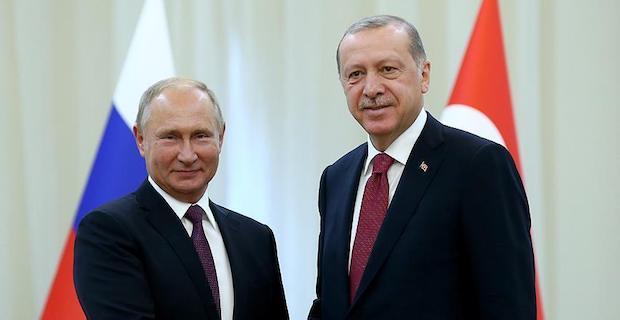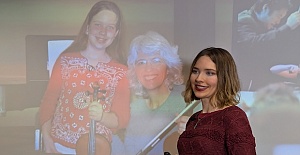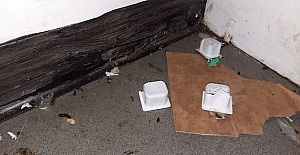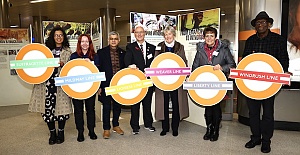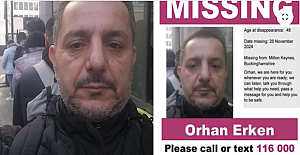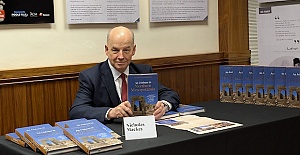Turkey and Russia on Monday agreed to turn Syria's northwestern Idlib province into a demilitarized zone.
"We have agreed on the establishment of a weapons-free zone between the opposition- and [Assad] regime-controlled areas," Turkish President Recep Tayyip Erdogan said in a news conference with his Russian counterpart Vladimir Putin in the Black Sea coastal city of Sochi, following a meeting between the two leaders.
Following the news conference, Ankara and Moscow signed a memorandum of understanding calling for the stabilization of the situation in Idlib's de-escalation zone, in which acts of aggression are prohibited.
"I believe that with this memorandum, we have prevented a great humanitarian crisis in Idlib," Erdogan said.
Putin said the demilitarized zone will extend between 15 to 20 kilometers (9-12 miles) deep into Idlib by Oct. 15.
He added that the establishment of the zone would be accompanied by the withdrawal of armed groups, including the al-Nusra Front.
Putin said all heavy weapons had to be withdrawn from the zone by Oct. 10, according to Erdogan’s proposal. This includes tanks, rocket launchers, guns and mortars of all opposition groups.
Joint patrols
He also said Russia and Turkey would restore transit routes between Syria's Aleppo, Latakia, Hama by the end of 2018.
Erdogan said Russia and Turkey will conduct joint patrols along the zone's perimeter.
He added Turkey would strengthen observation points in the Idlib de-escalation zone.
"The opposition will remain in areas in which they are already present. We will ensure that radical groups will not operate in the area," Erdogan said.
He said Russia will take necessary measures to protect the de-escalation zone in Idlib.
"We will jointly ensure the detection and prevention of both third parties' provocations and violations against this agreed memorandum," Erdogan added.
Putin said: "Russia and Turkey reaffirmed their determination to fight terrorism in Syria in all its forms. [...] The practical implementation of the planned steps will give an additional impetus to the process of a political settlement of the Syrian conflict, will accelerate work on the Geneva platform and will contribute to the return of peace to the Syrian land."
The Russian president said that this approach was supported by the Syrian side. He said consultations with Damascus could be held in the near future.
Erdogan also said "terror nests" east of the Euphrates river posed the "biggest" threat for Syria's future.
"The main structure that attempts against Syria's territorial integrity and threatens Turkey's national security is PYD/YPG," Erdogan said, adding these "terror swamps" should be drained.
Bilateral relations
Erdogan said the trade volume between Russia and Turkey increased 33 percent in the first of half of 2018 and reached around $15 billion.
He added 6 million Russian tourists will have visited Turkey by the end of this year.
Erdogan also said Ankara expected Moscow to launch the visa-free regime once again.
"Our ministries are working in this regard and we expect to get immediate results about this," he added.
Putin said Russia and Turkey should trade in local currencies.


 After Nesil Caliskan a by-election will be held in Jubilee ward in Enfield
After Nesil Caliskan a by-election will be held in Jubilee ward in Enfield Publishing the analysis, Labour’s Cllr Ergin Erbil said Everybody in Enfield deserves basic rights
Publishing the analysis, Labour’s Cllr Ergin Erbil said Everybody in Enfield deserves basic rights Gaza-Israel conflict Statement from Cllr Ergin Erbil, Leader of Enfield Council
Gaza-Israel conflict Statement from Cllr Ergin Erbil, Leader of Enfield Council Cllr Ergin Erbil was elected as the new Leader of Enfield Council
Cllr Ergin Erbil was elected as the new Leader of Enfield Council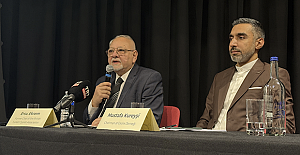 History of the Turkish Cypriot People symposium held in London
History of the Turkish Cypriot People symposium held in London Asia's most famous and powerful 100 women award given to WFPA President Naziya Bisenova
Asia's most famous and powerful 100 women award given to WFPA President Naziya Bisenova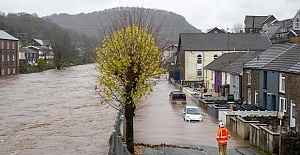 Death toll climbs to 5 as powerful Storm Bert batters Britain
Death toll climbs to 5 as powerful Storm Bert batters Britain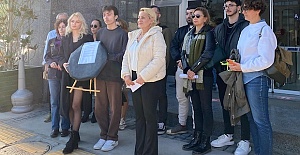 Turkish students are unable to obtain visas from the Italian Consulates
Turkish students are unable to obtain visas from the Italian Consulates Footballers are celebrating after Enfield Council officially opened a pitch
Footballers are celebrating after Enfield Council officially opened a pitch 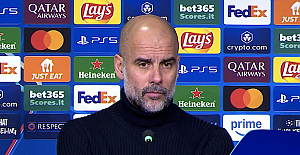 Pep Guardiola's Manchester City beaten by Juventus
Pep Guardiola's Manchester City beaten by Juventus Chelsea to meet Arsenal in Sunday's London derby
Chelsea to meet Arsenal in Sunday's London derby Fenerbahce vs Manchester United Predicted line-ups! Jose Mourinho faces former side
Fenerbahce vs Manchester United Predicted line-ups! Jose Mourinho faces former side Shape the future of housing services with The Enfield 500
Shape the future of housing services with The Enfield 500 DOUBLE-CAB PICKUPS TO BE CLASSED AS CARS UNDER NEW HMRC POLICY
DOUBLE-CAB PICKUPS TO BE CLASSED AS CARS UNDER NEW HMRC POLICY Guide to Selling Hoodies with Imprinted Book Quotes
Guide to Selling Hoodies with Imprinted Book Quotes Google Street View launches at London’s busiest stations, making journeys easier
Google Street View launches at London’s busiest stations, making journeys easier





